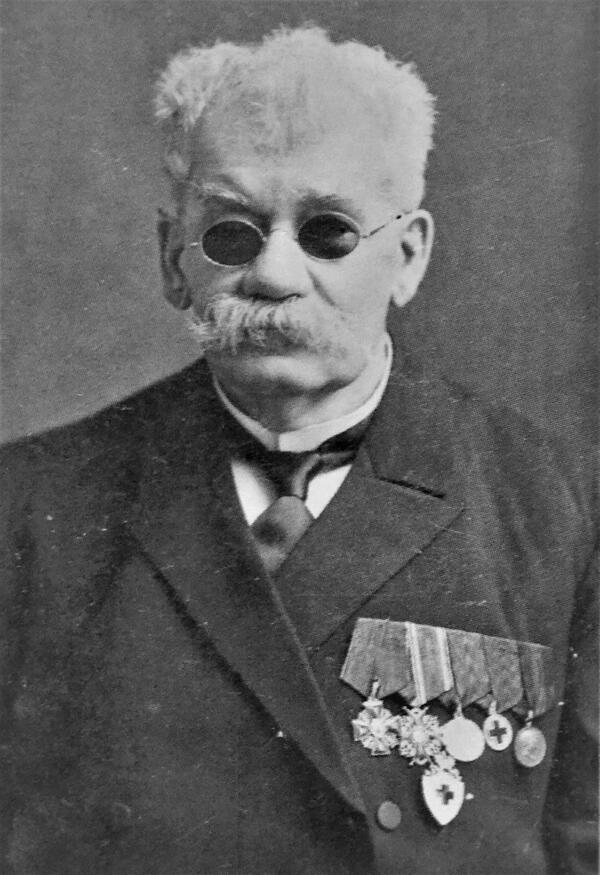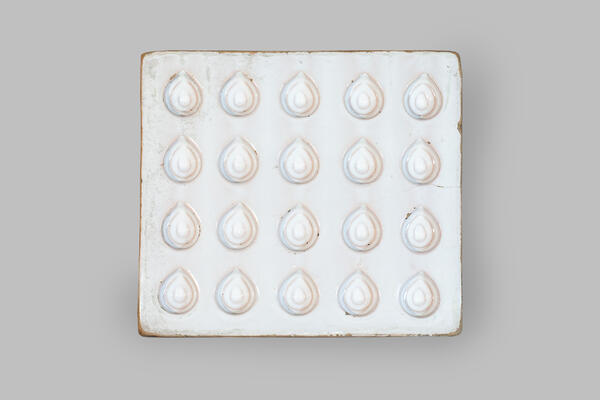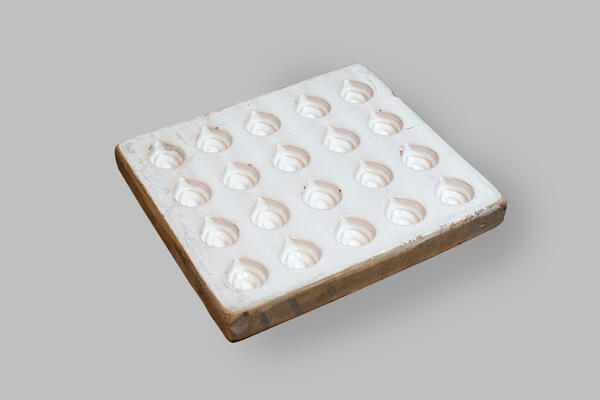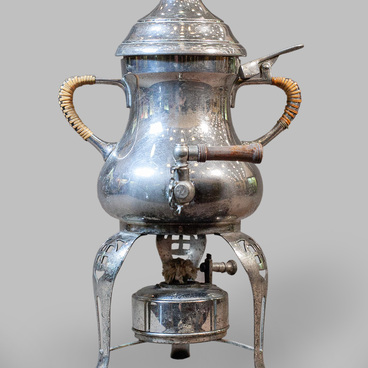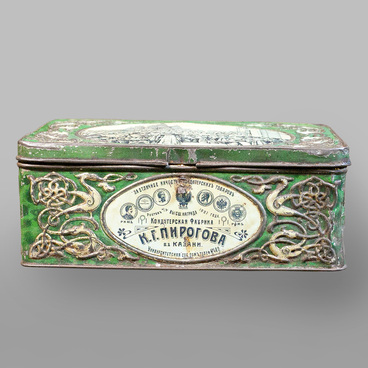Stanislav Osipovich Yakubovsky (1843–1913) stood out among the other Vyatka entrepreneurs. He did not inherit a fortune or come from an influential merchant family. He had a difficult life and earned the title of the confectionery king of Vyatka.
Stanislav Yakubovsky was a Polish nobleman who was exiled as a student to the Vyatka Governorate for participating in the January Uprising of 1863. At the end of his exile, Yakubovsky regained his property rights and in 1874 set up a small confectionery factory in Vyatka. Manual work at his factory was reduced to a minimum. Almost all operations were carried out by machines purchased abroad: they poured flour into kneading troughs, added water, and mixed the dough. On large tables, the dough was cut and put in molds and on baking sheets. The workers needed only to control these devices.
There was perfect order at the confectionery factory. Yakubovsky valued his reputation and took personal responsibility for the quality of his products. The bread was baked three times a day: at 5 am for breakfast, at 11 am for lunch, and at 17 pm for dinner. After two hours, bread was no longer considered fresh and was sold with a discount, and at the end of the day, the morning bread was used for making crackers for the poor or used as stock feed. However, the owner was so thrifty that there were practically no leftovers.
In her memoirs, Iya Francesci described the confectionery of Stanislav Yakubovsky, “Yakubovsky’s confectionery was famous in our town. Exiled from Poland to Vyatka, he soon settled here, and built a beautiful house, a candy factory, and a bakery. His cakes and pastries were known throughout the governorate. You could buy a puff or a cake for 3 kopecks, as well as rolls, cakes, crackers — and everything was perfectly delicious.”
It was almost impossible for an exiled Polish resident to set up a business in the Russian provinces so quickly, which indicates Yakubovsky’s great entrepreneurial spirit. Interestingly, the confectionery factory was not his only enterprise. He also owned a musical instrument store, a shoe shop, and several houses, and was held in respect. In a short period of time, a person of a different culture, for whom the local way of life was completely foreign, managed to put together an entire business empire, join the local business elite, and receive the title of the “chocolate king” of Vyatka.
Stanislav Yakubovsky was a Polish nobleman who was exiled as a student to the Vyatka Governorate for participating in the January Uprising of 1863. At the end of his exile, Yakubovsky regained his property rights and in 1874 set up a small confectionery factory in Vyatka. Manual work at his factory was reduced to a minimum. Almost all operations were carried out by machines purchased abroad: they poured flour into kneading troughs, added water, and mixed the dough. On large tables, the dough was cut and put in molds and on baking sheets. The workers needed only to control these devices.
There was perfect order at the confectionery factory. Yakubovsky valued his reputation and took personal responsibility for the quality of his products. The bread was baked three times a day: at 5 am for breakfast, at 11 am for lunch, and at 17 pm for dinner. After two hours, bread was no longer considered fresh and was sold with a discount, and at the end of the day, the morning bread was used for making crackers for the poor or used as stock feed. However, the owner was so thrifty that there were practically no leftovers.
In her memoirs, Iya Francesci described the confectionery of Stanislav Yakubovsky, “Yakubovsky’s confectionery was famous in our town. Exiled from Poland to Vyatka, he soon settled here, and built a beautiful house, a candy factory, and a bakery. His cakes and pastries were known throughout the governorate. You could buy a puff or a cake for 3 kopecks, as well as rolls, cakes, crackers — and everything was perfectly delicious.”
It was almost impossible for an exiled Polish resident to set up a business in the Russian provinces so quickly, which indicates Yakubovsky’s great entrepreneurial spirit. Interestingly, the confectionery factory was not his only enterprise. He also owned a musical instrument store, a shoe shop, and several houses, and was held in respect. In a short period of time, a person of a different culture, for whom the local way of life was completely foreign, managed to put together an entire business empire, join the local business elite, and receive the title of the “chocolate king” of Vyatka.

